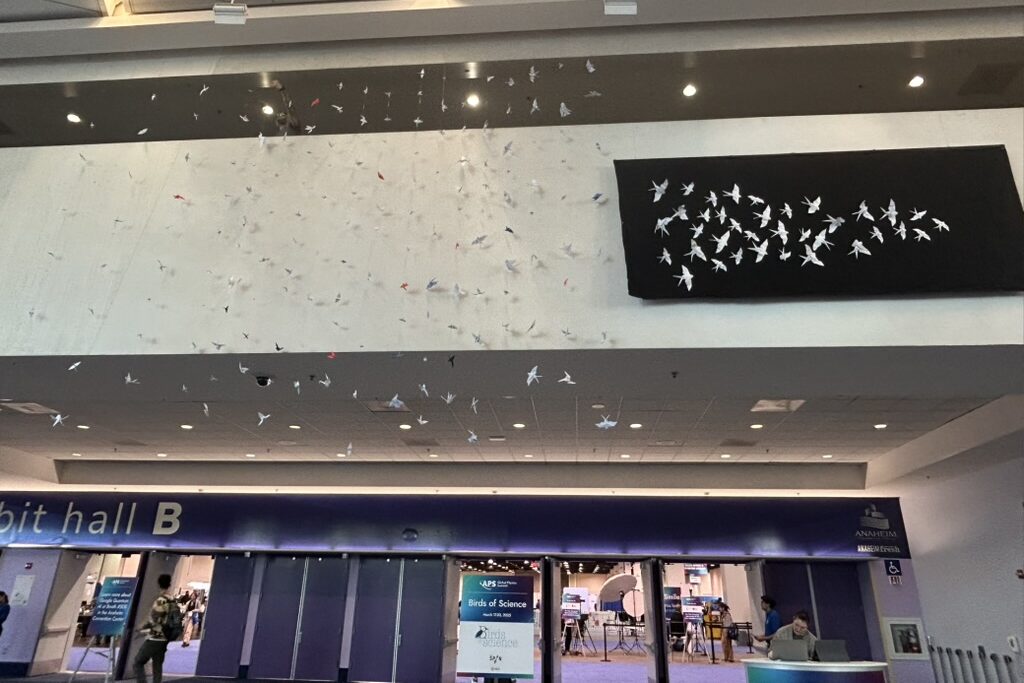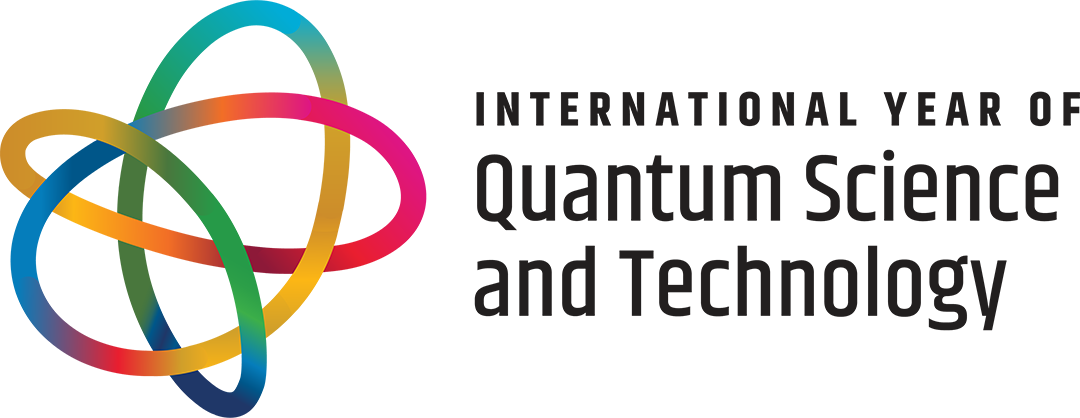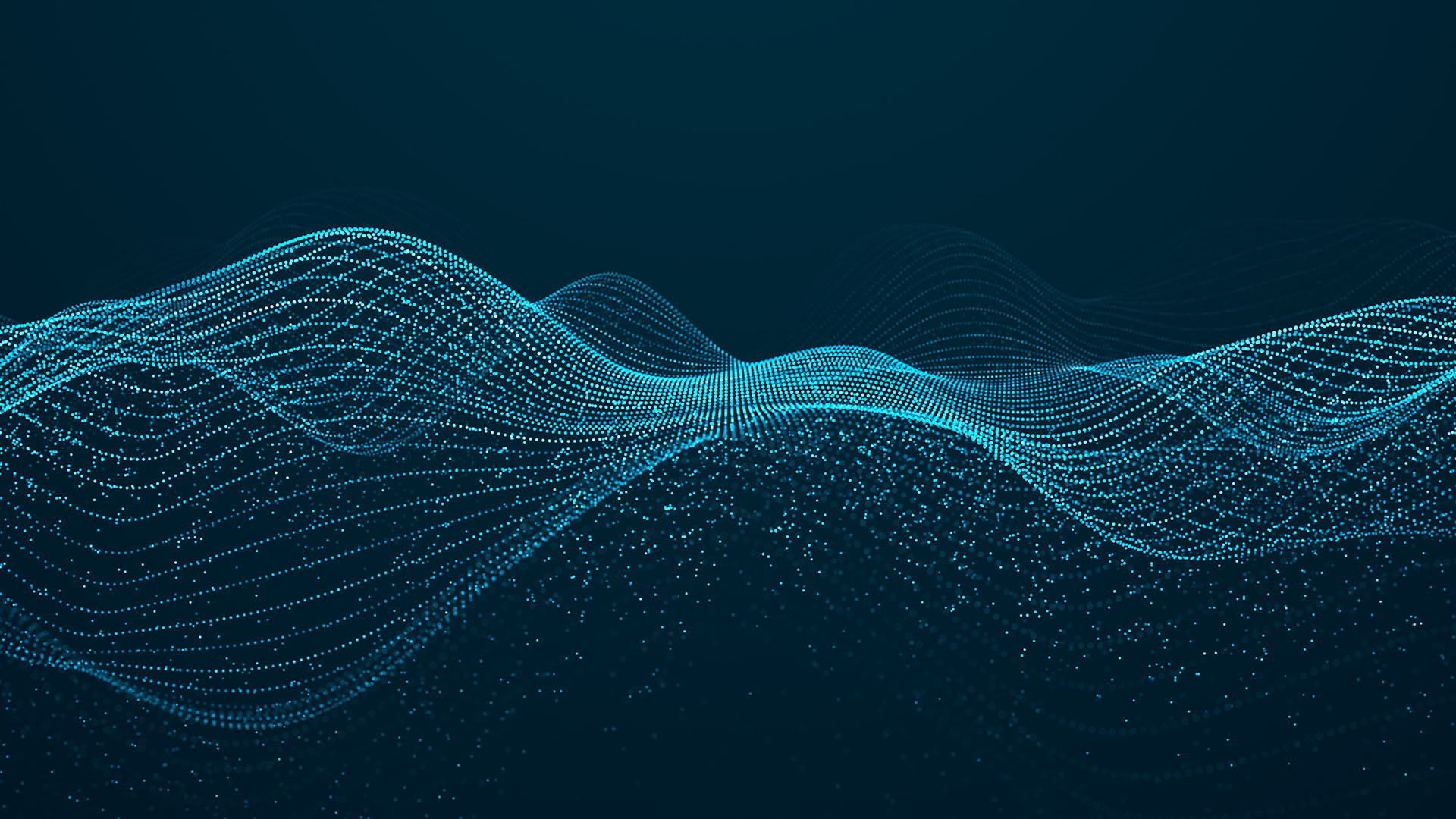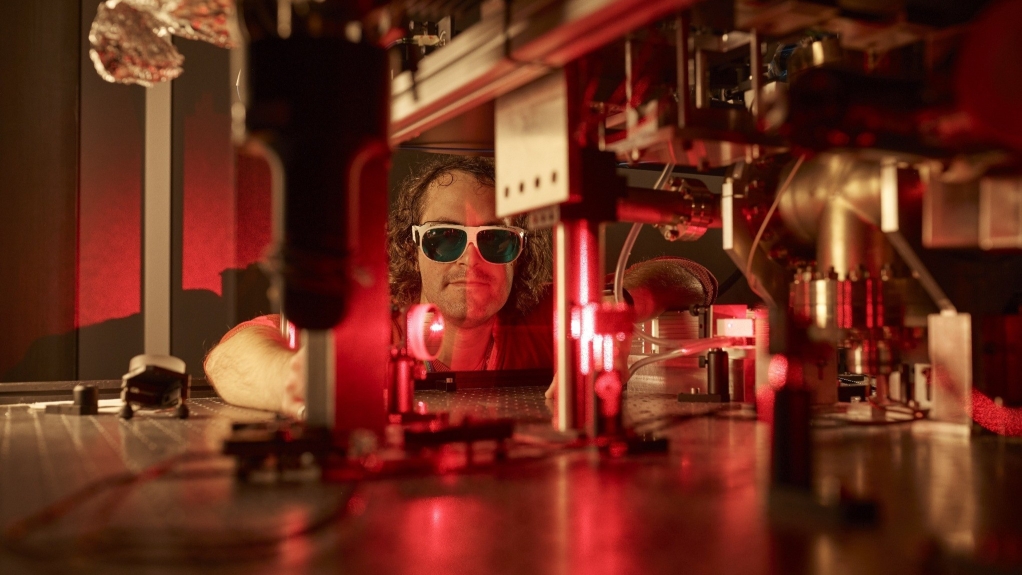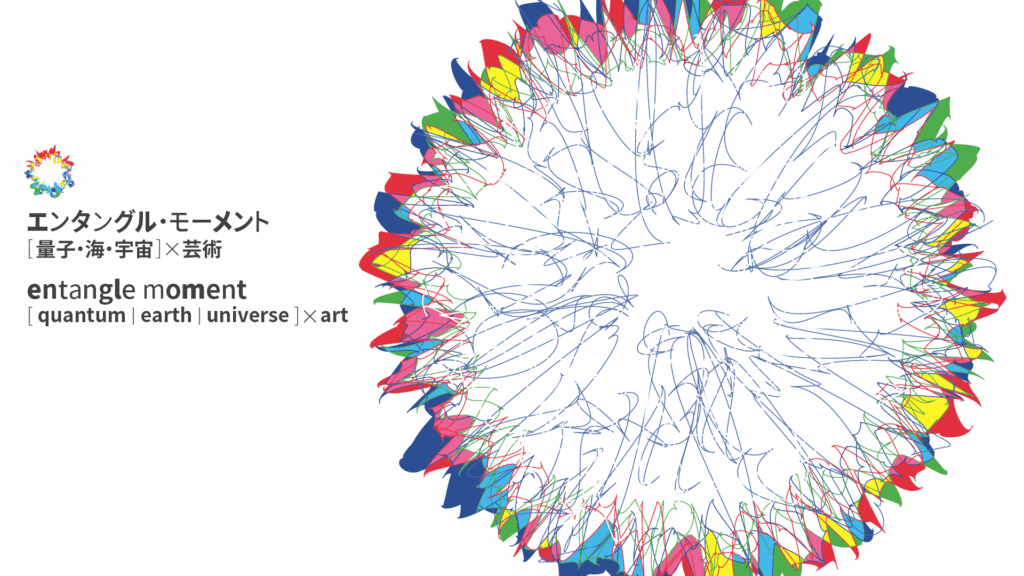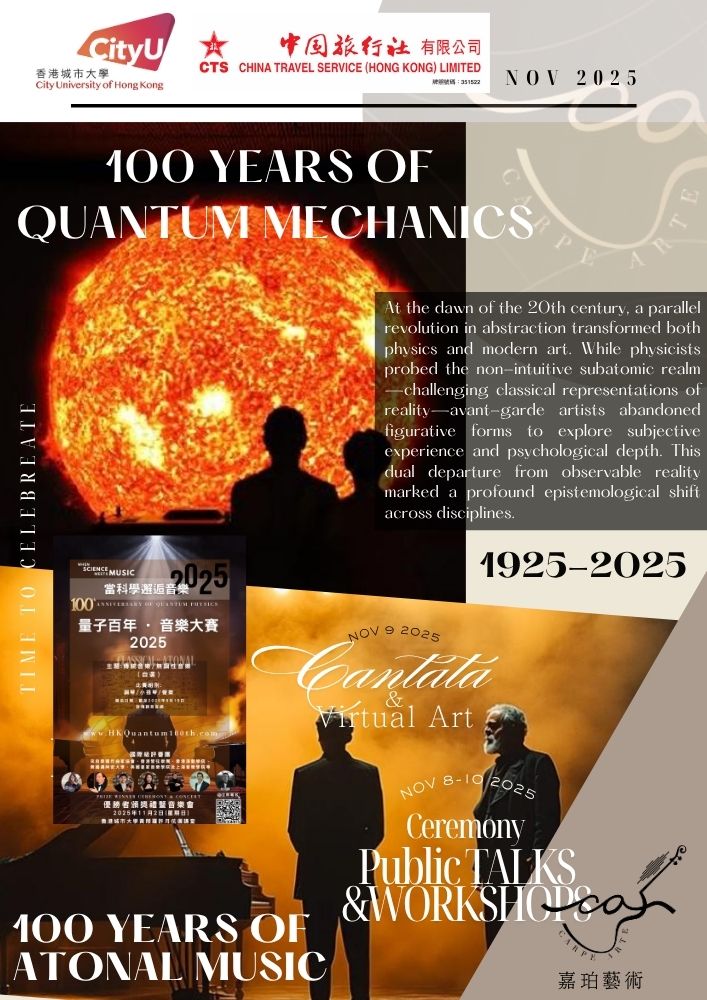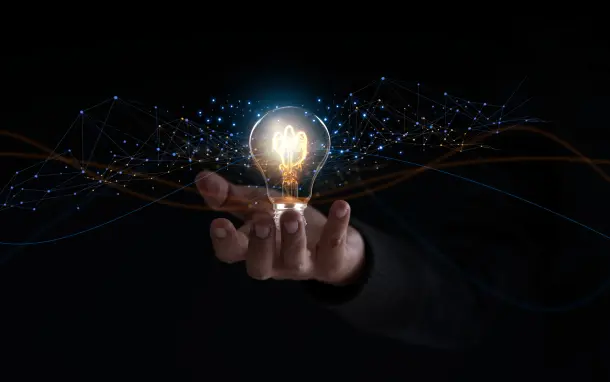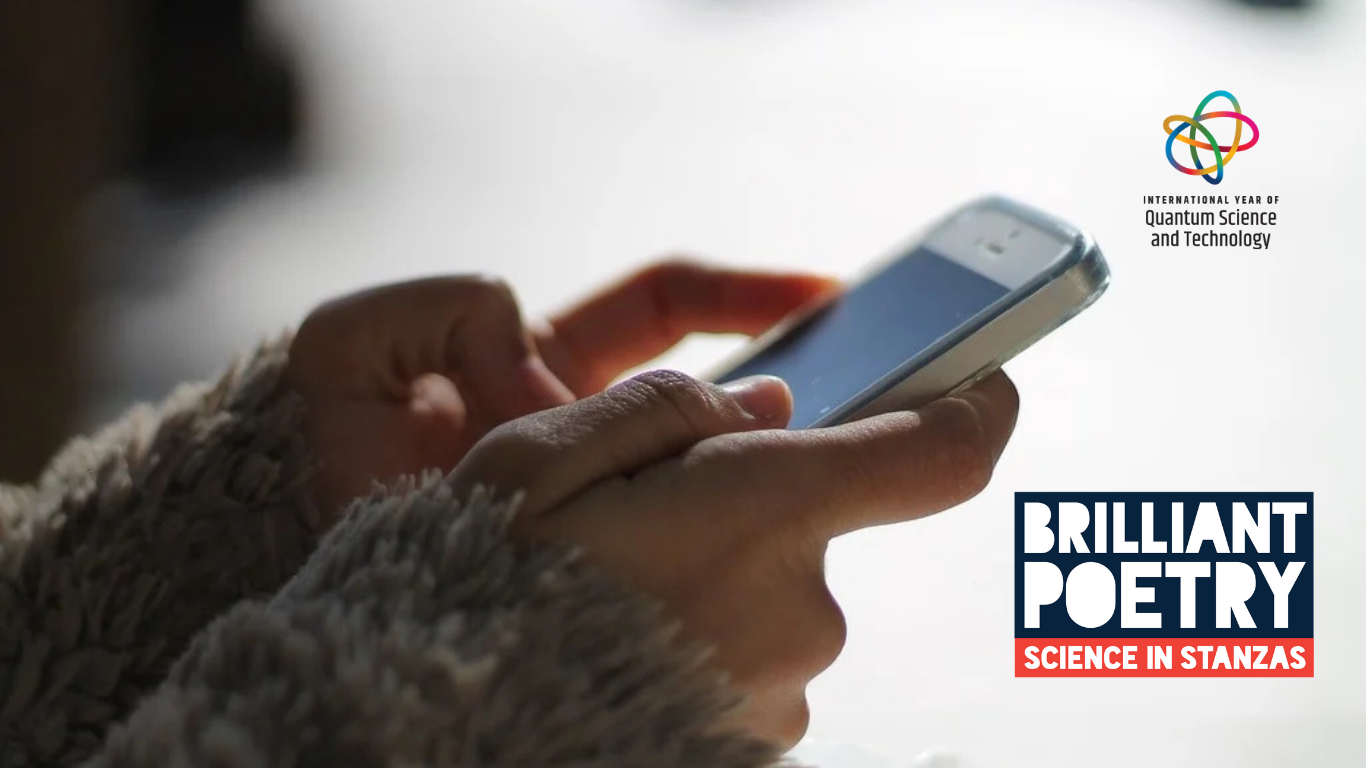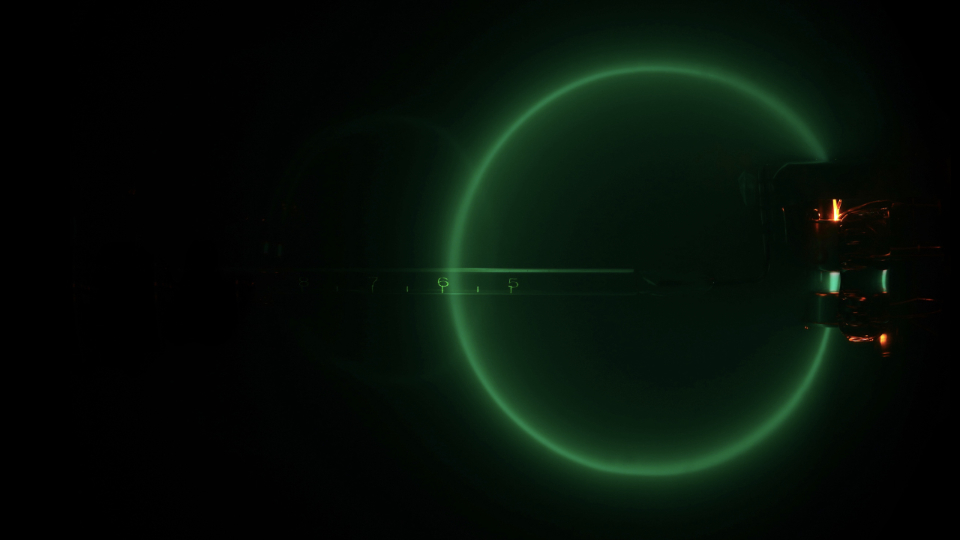This is an afternoon program at the National Communication Museum (NCM) that aims to present complex ideas, research, and theories from quantum physics to a general audience, with the goal of increasing engagement and promoting broader knowledge. We are engaging three Melbourne academics and experts in their respective areas of quantum research to present their key findings in a fun and accessible way, utilizing engaging visual presentations and humorous yet informed talks. This program is linked to our current Quantum Futures exhibition: https://ncm.org.au/exhibitions/quantum-futures.
Entangle Moment – [Quantum | Earth | Universe] × Art
Overview
To commemorate the declaration of 2025 as the “International Year of Quantum Science and Technology,” this summer, we will hold a special exhibition titled “entangle Moment — [quantum, earth, universe] × art” at the Osaka–Kansai Expo in Japan.
This exhibition aims to allow a wide range of visitors to experience three key themes—the microscopic world of quantum, the oceans and Earth that nurture life, and the vast universe—through collaborations between science, technology, and art.
About the Exhibition
The year 2025 marks the 100th anniversary of the discovery of quantum mechanics.
In recognition of this milestone, the United Nations General Assembly has declared 2025 the “International Year of Quantum Science and Technology” under the auspices of UNESCO.
In celebration of this historic year, entangle moment – [quantum | earth | universe] × art will present an immersive experience of the quantum, ocean, and cosmic realms through interdisciplinary collaboration across science, technology, and the arts.
From the microcosmic world of quantum mechanics to the deep sea and global ecosystems and out into the mysteries of the cosmos, this exhibition offers “entangled” installations, where scientific knowledge and artistic imagination are interwoven.
Just as quantum research spans a century, scientists and artists alike have long explored the invisible, the uncertain, and the deeply mysterious aspects of nature.
Across eras, it is creative experimentation—rooted in imagination and technology—that has opened new paths of perception.
The venue will feature a circular space inspired by the legendary Ouroboros, symbolizing continuity between the micro and macro realms.
Visitors are invited to journey through a conceptual loop of past, present, and future
Within this space, cutting-edge research from Japanese universities, institutions, and companies—including quantum computing and sensing, quantum communication, Arctic exploration, deep-sea research tracing the origins of life, and astrophysical studies on black holes and dark matter—will coexist with artistic expressions to form a unique and immersive environment. Through these exhibitions, videos, XR installations, interactive artworks, and computer games, visitors may witness the moment when a new form of art emerges—born from the convergence of imagination and science.
As you explore the exhibition at your own pace, we invite you to reflect on how science and technology are becoming inseparable from our changing planet, and to consider the “moment” we live in—across past, present, and future.
A rich lineup of stage events will also be held, including talks, workshops, and musical programs featuring researchers, artists, and thinkers from diverse fields.
We hope this exhibition serves as a catalyst for new questions, ideas, and initiatives that will propel us into the next 100 years.
Cosmic Voyages, Quantum Journeys
Join us for a captivating afternoon that brings science and art together through a reading from the new book Two Revolutions: Einstein’s Relativity and Quantum Physics, jointly authored by the late black hole physicist C. V. Vishveshwara and his daughter, theoretical physicist Smitha Vishveshwara. The book explores the twin revolutions of Einstein’s relativity and quantum physics, woven through personal reflections and imaginative storytelling. The event will feature artists and physicists sharing science, dramatized dialogues spanning themes from the quantum to the cosmic, and a dance performance that interprets the story of the Universe and the rhythm of scientific discovery through movement.
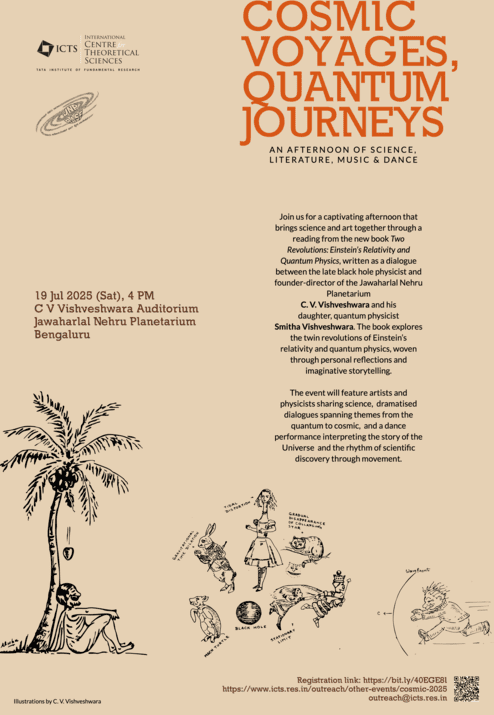
Book reading: Vijay Padaki (Theatre Educator & Playwright), Minti Jain (Theatre Educator & Actor), Dr B S Shylaja (Former Director, JNP), Sri Pramod G Galgali (Former Director, JNP), Sri H R Madhusudana (Visiting Faculty, JNP), and Smitha Vishveshwara (Quantum physicist & author)
Interpretive dance: Suma Krishnamurthy (Bharathanatyam Dancer)
Music: Lavanya Krishnamurthy (Karnatak Musician)
Guest scientists: Parameswaran Ajith (Astrophysicist)
Anchor: Prajval Shastri (Astrophysicist)
C. V. Vishveshwara was a theoretical physicist, affectionately known as the “Black Hole Man of India.” He is best known for his discovery of the “quasi-normal modes” of black holes — vibrational modes of black holes that are analogous to the ringdown of a bell. His predictions were confirmed by the recent observations of gravitational waves. A well-known author and cartoonist, he was the founding director of the Jawaharlal Nehru Planetarium in Bengaluru.
Smitha Vishveshwara is a theoretical physicist at the University of Illinois Urbana-Champaign, known for her work at the interface of condensed matter physics and quantum phenomena. She is also known for her creative approaches to science communication, blending physics with music, theatre, and storytelling to make complex ideas accessible to broad audiences.
Brilliant (Quantum) Poetry
The Brilliant (Quantum) Poetry competition invites participants worldwide to submit poems inspired by quantum science themes, such as superposition, entanglement, and uncertainty. Submissions will be accepted in all UN official languages, with English translations for judging.
Prizes
First prize £1000 — Second prize £500 — Third prize £250
Launch: March 21, 2025
Submission Deadline: June 30, 2025
Winners will be announced on November 10
100th Anniversary of Quantum Physics
2025 also marks the 100 years of atonal music. Dr. Wu Xiaodong, Founder of Executive Medical Physics Associates, a dedicated publisher and a sought-after lecturer in medical physics and cancer research worldwide, also a lifelong advocate for classical music, has discovered the connection between quantum physics and atonal music. To celebrate the 100th anniversary of the two inventions, he worked closely with a young American composer and created a brand new choral symphony, Quantum Odyssey. It consists of 7 acts, and we will perform Act II: The Unveiling of Quantum Laws as the world premiere performance.
This Choral Symphony will be performed by the prestigious tenor and soprano, together with Hong Kong’s famous conductor and its orchestra and choir. Visual presentation created by students of the School of Creative Media of City University will be incorporated throughout the symphony. We aim to promote public participation in celebration of this 100-year event, to encourage science popularization and the understanding of science through music and the arts.
Share Your Vision of Light and Quantum Science
Light is one of the most basic and essential parts of the universe. It’s also where the journey into quantum science, the branch of science that studies how the tiniest particles in the universe behave, begins. From the glow of heated objects to the puzzling behavior of tiny particles of light, light has helped us discover how the quantum world works.
Share your visual works on light and quantum science. Selected submissions will be showcased on UNESCO’s website.
Key dates
- Call opens: 16 May 2025 (International Day of Light)
- Submission deadline: 16 July 2025
- Public voting: August 2025
- Publication of winners: October 2025
Uncertain-Sea Principle, a Brilliant Quantum Poem by Richard Blanco
What happens when the beauty of the quantum world collides with the power of literature? The Brilliant (Quantum) Poetry Competition dares poets from around the globe to explore just that. This unique international contest, created to celebrate the International Year of Quantum Science and Technology, invites everyone to express quantum science in verse.
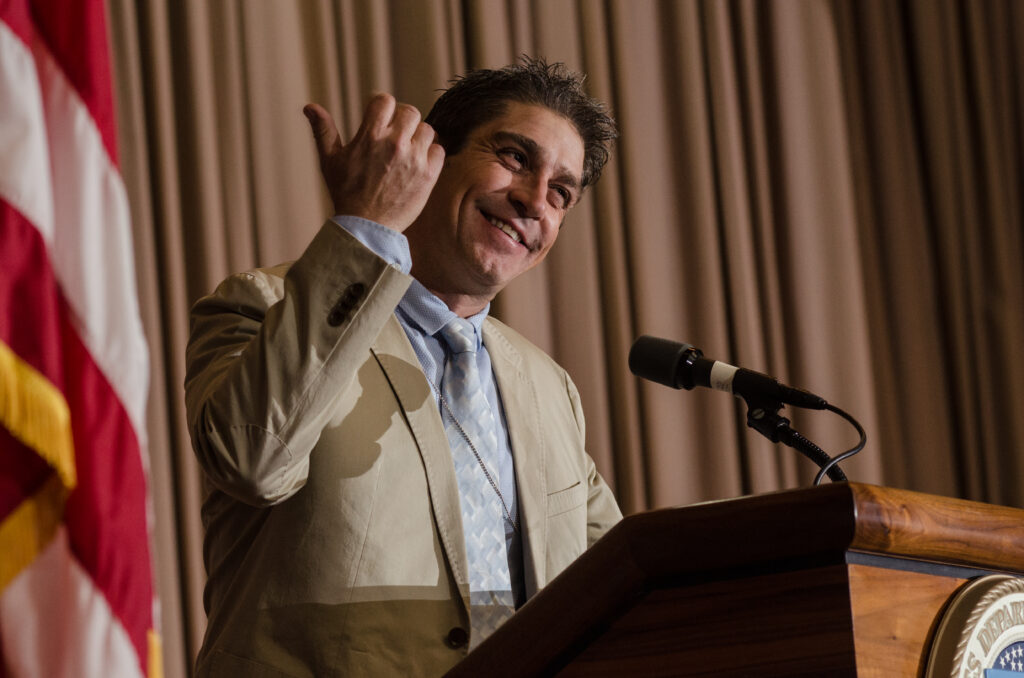
Hosted virtually by The Brilliant Poetry Project, the call for submissions opened on March 21 this year and will close next week on June 30. Winners will be announced on November 10. In this framework, and to help inspire quantum enthusiasts, poet and engineer Richard Blanco shared his “stereoscope or contrapuntal poem,” Uncertain-Sea Principle, inspired by the quantum uncertainty principle introduced by Werner Heisenberg, one of the scientists who helped develop quantum mechanics 100 years ago. The author remarks that it can be read “in more than one way, such as left to right across the two columns or down first one column and then the other.”
Note: To read the poem from left to right across both columns, it must be opened on a desktop (laptop).
Uncertain-Sea Principle
after Werner Heisenberg
the more I try to measure x
the more I know where I am
I scribble my name across the sand
the more I know where I’m going
the ebb of each wave seduces me
the more I know how to get there
freighter lights burn on the horizon
like candelabras floating toward port
the more I know when I’ll arrive
the tide rises on cue to kiss the shore hello
the less I try to solve for y
the less I know where I am
rustling palms protest losing
their green to the darkness
the less I know where I’ve been
the ocean vanishes into the midnight sky
the less I know who I can be
there’s no horizon in the stark night
the less I know who I am
I erase my name with a wave of my palm
the more I try to determine my I
the less I can measure y
the less I know where I’m going
the burnt-orange moon rises, cools, disappears
the less I know how to get there
silhouettes of sailboats sleep till morning
the less I know when I’ll arrive
sea oats sway to the wind’s pitch
like inverted pendulums of timelessness.
the less I know where I am
seagulls abandon the sea every night
the more I can solve for x
the more I know where I’ve been
the sea gives and gives itself to the shore
yet returns again and again to itself
the more I know who I can be
the midnight sky vanishes into the ocean
the more I know who I am
even in the dark my eyes shape clouds
the more I know that I am, here
I clutch a fistful of sand, breathe, listen
the less I can determine my self
Listen to the poem below, read by the author in the video
“Uncertain-Sea Principle” is from the book Homeland of My Body: New and Selected Poems by Richard Blanco. Copyright © 2023 by Richard Blanco. Used with permission from Beacon Press and Richard Blanco.
Video edited by Serena Krejci-Papa
Feature picture edited by Alexandra De Castro
Quantum Play: Copenhagen at Yale
Set in 1941, Copenhagen explores the enigmatic meeting between German physicist Werner Heisenberg and his Danish counterpart, Niels Bohr, amidst the backdrop of World War II. As former collaborators now on opposing sides, they grapple with the mysteries of quantum physics and the complexities of human relationships.
Sponsored by the Yale Quantum Institute (YQI) in recognition of the 2025 International Year of Quantum Science and Technology this production marks the centennial of Heisenberg’s Matrix Mechanics. Through the YQI Artist-in-Residence program, producer Florian Carle collaborates with director Vince Tycer and talented artists from Yale and UConn to bring this profound story to life.
Florian Carle, YQI Managing Director, shares, “When I created the YQI Artist-in-Residence program, bringing quantum physics to a theater production was always in the back of my mind. The QuantumCT initiative brought Vince Tycer and me together to explore how to teach quantum science to diverse learners. I could only think about one thing: Copenhagen.”
Don’t miss this unique blend of art and science that offers a glimpse into the minds of two iconic figures in quantum theory.
Inspiring the Next Generation: Teaching Optics and Photonics to Young Minds in the Age of New Technologies
The interactive session is designed as an exchange between colleagues and physics educators to explore and discuss new possibilities, approaches, and tools in the teaching of physics, with a particular focus on optics and photonics.
Under the motto: “Quantum Physics Unleashed – Navigate the fascinating Double-Slit Experiment. Step into a digital universe where quantum weirdness becomes an interactive journey, transforming abstract physics into a breathtaking visual experience,” the double-slit experiment will be presented in a virtual reality (VR) environment. For this purpose, the experiment has been visualized using Unity and implemented on a Pico 4 headset. Participants will have the opportunity to experience the experiment in an immersive manner.
The use of simulations is demonstrated through the example of determining the specific charge (e/m). For this purpose, we have developed an app that realistically simulates the experiment. Using the app, it is possible to determine the specific charge of the electron for various parameters.
Birds of Science
Birds of Science is a collaborative art and science project in which participants craft origami birds from the pages of their scientific writings or their notebooks. These origami birds come together as they are created to form a breathtaking large-scale installation, symbolizing the knowledge, science, and the collective journey of ideas taking flight.
Birds of Science is created and directed by NCCR SPIN.
